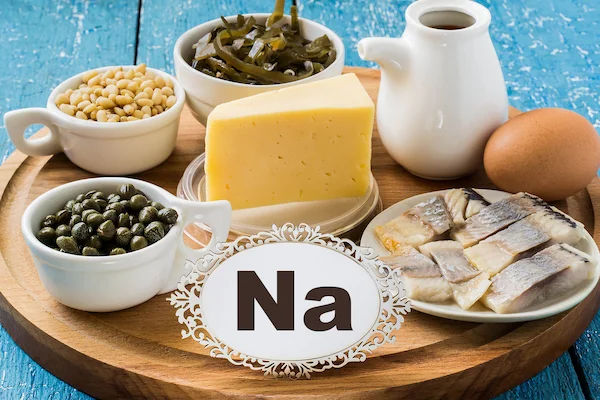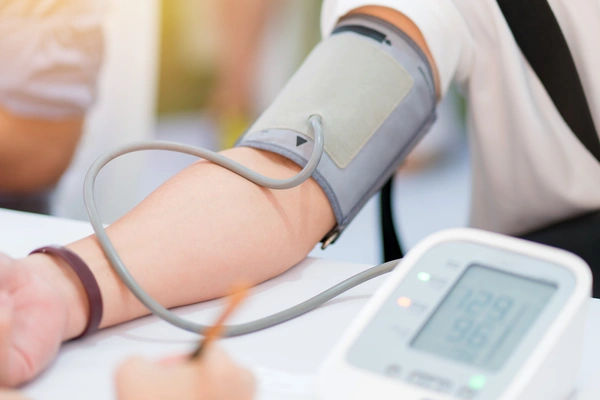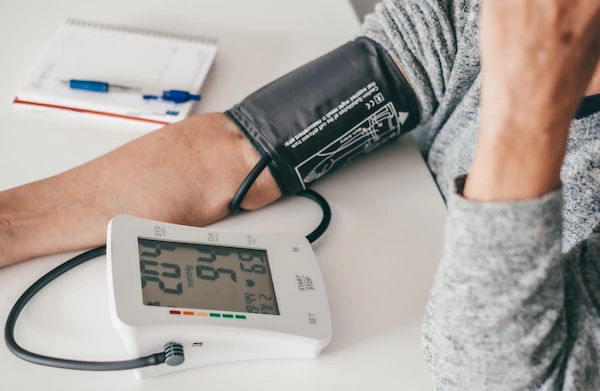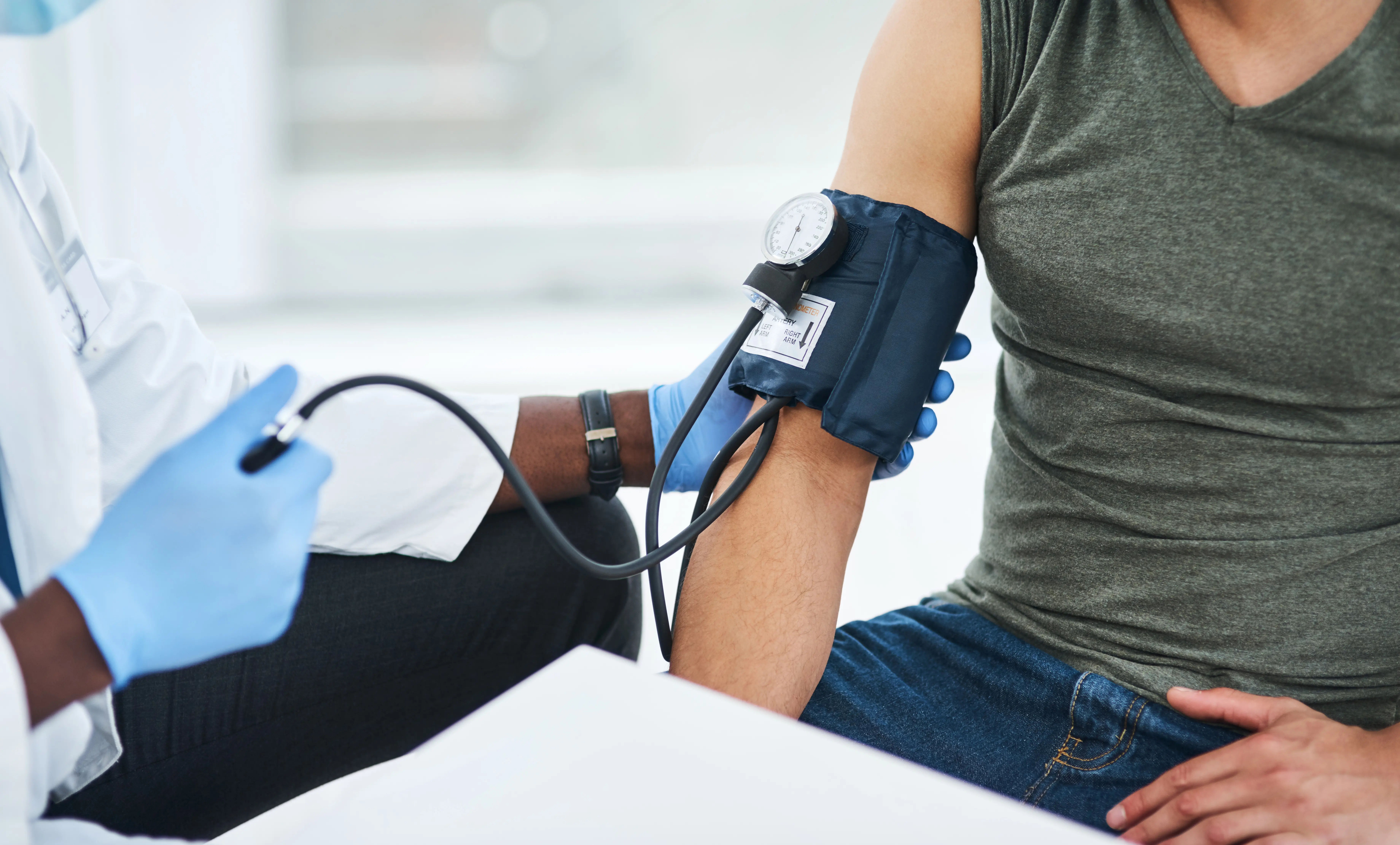Guide to High Blood Pressure Side Effects And Complications
Explore the side effects of high blood pressure and its potential complications. Learn how hypertension impacts health and ways to manage the risks.


Introduction
High blood pressure, or hypertension, is far more than just a number on a screen. It’s a pervasive condition that, when left unmanaged, exerts a constant, damaging force on your entire body. Often presenting with no obvious signs, it silently strains your heart, hardens your arteries, and compromises vital organs. This guide moves beyond the basics to explore the direct link between the subtle side effects you might feel and the severe, life-altering complications that can develop over time. Understanding this connection is the first step toward taking control of your cardiovascular health. We’ll delve into how hypertension manifests, the mechanisms behind the damage it causes, and, most importantly, the proactive strategies you can employ to protect your well-being and prevent long-term consequences.
What is High Blood Pressure? The Silent Force Within
High blood pressure is a chronic medical condition where the force of blood against your artery walls is consistently too high. Think of your arteries as hoses; too much pressure over time can cause them to become damaged, stiff, and narrowed.
Systolic vs. Diastolic: Understanding the Numbers
Your blood pressure reading consists of two numbers:
- Systolic pressure (top number): The pressure in your arteries when your heart beats.
- Diastolic pressure (bottom number): The pressure in your arteries when your heart rests between beats.
A normal reading is typically below 120/80 mm Hg. Consistently reading 130/80 mm Hg or higher is generally classified as hypertension.
Why is it Called the "Silent Killer"?
This moniker exists for a crucial reason: high blood pressure often has no symptoms. You can have dangerously elevated levels for years without feeling a single thing. This absence of warning signs is what allows the condition to inflict gradual damage, making regular check-ups essential. You can easily monitor this from home; affordable digital monitors are widely available, and if you need a clinical-grade assessment, Apollo24|7 offers a convenient home collection for tests like lipid profiles and metabolic panels that are crucial for heart health.
Consult a Cardiologist for the best advice
The Early and Common Side Effects of Uncontrolled Hypertension
While often asymptomatic, some people with elevated levels do experience noticeable signs of uncontrolled hypertension. These are your body's distress signals.
Neurological Symptoms: Headaches, Dizziness, and Nosebleeds
Severe headaches, particularly at the back of the head and in the morning, can occur. Dizziness or lightheadedness may also be present. While occasional nosebleeds are common and rarely a sole indicator, frequent ones coupled with other symptoms warrant a blood pressure check.
Physical Manifestations: Shortness of Breath and Chest Pain
When the heart has to work harder to pump against high pressure, it can lead to breathlessness during routine activities or even at rest. Chest pain (angina) can also signal that the heart muscle isn't getting enough oxygen due to strain or underlying coronary artery disease.
Visual Disturbances: The Link Between Hypertension and Eye Problems
The tiny, delicate blood vessels in your eyes are highly susceptible to pressure damage. This can cause blurry vision, double vision, or even temporary vision loss. An eye doctor can often see signs of hypertensive retinopathy before you notice any visual symptoms.
From Side Effect to Complication: How Hypertension Damages Your Body
This is where the silent force becomes a destructive one. Persistent high pressure causes systemic damage through a process that often begins with endothelial dysfunction (damage to the inner lining of blood vessels).
The Cardiovascular System: Heart Attack, Stroke, and Heart Failure
This is the most common and dangerous set of long-term effects of high blood pressure.
How Hypertension Leads to Atherosclerosis (Artery Hardening): The constant high-pressure flow injures the artery
walls. The body repairs this damage by depositing plaques (cholesterol, fat, calcium). This buildup, called atherosclerosis, narrows and stiffens arteries, restricting blood flow.
- Heart Attack: If a plaque in a coronary artery ruptures, a clot can form, completely blocking blood flow to part of the heart muscle.
- Stroke: Atherosclerosis in arteries leading to the brain can cause a blockage (ischemic stroke). Alternatively, high pressure can weaken a vessel wall until it bursts (hemorrhagic stroke).
- Heart Failure: The heart muscle, forced to pump against high pressure for years, thickens and becomes stiff (left ventricular hypertrophy). Eventually, the overworked heart can weaken and fail to pump enough blood to meet the body's needs.
The Kidneys: Chronic Kidney Disease and Failure
Your kidneys are filters filled with tiny blood vessels. High pressure can damage these vessels, impairing the kidneys' ability to filter waste from the blood. This can lead to chronic kidney disease (CKD), and eventually, kidney failure, requiring dialysis or a transplant. The connection between blood pressure and kidney disease is a vicious cycle, as damaged kidneys can further elevate blood pressure.
The Brain: Cognitive Decline and Dementia
Reduced blood flow to the brain due to narrowed arteries doesn't just risk a major stroke. It can also cause a series of "silent" mini-strokes and gradual damage to white matter. This ongoing deprivation of oxygen and nutrients is a significant contributor to vascular cognitive decline and dementia.
The Eyes: Hypertensive Retinopathy and Vision Loss
As mentioned, ongoing pressure damages the retinal vessels. This can progress beyond blurry vision to cause bleeding in the eye, fluid accumulation, and swelling of the optic nerve. Without treatment, this can lead to permanent and severe vision loss.
Sexual Health: Erectile Dysfunction and Reduced Libido
In men, successful erections rely on healthy blood flow. Hypertension and erectile dysfunction are strongly linked because atherosclerosis restricts blood flow to the penis. In both men and women, it can also contribute to a reduced libido.
Recognising a Hypertensive Crisis: When to Seek Immediate Help
A hypertensive crisis is a severe, rapid increase in blood pressure (often above 180/120 mm Hg). This is a medical emergency. Symptoms include:
- Severe headache
- Severe anxiety
- Shortness of breath
- Nosebleeds
- Confusion or blurred vision
- Chest pain
If you experience these symptoms with a high reading, seek emergency care immediately. Delaying treatment can lead to life-threatening complications.
Proactive Management: Preventing and Controlling High Blood Pressure
The good news is that hypertension is highly manageable, significantly reducing the risk of all these complications.
The DASH Diet and Sodium Reduction
The Dietary Approaches to Stop Hypertension (DASH) diet is proven to lower blood pressure. It emphasises fruits, vegetables, whole grains, lean protein, and low-fat dairy while reducing sodium, saturated fat, and added sugars. Reducing sodium intake to under 2,300 mg (ideally 1,500 mg) per day can have a dramatic effect.
The Role of Regular Exercise and Weight Management
Aim for at least 150 minutes of moderate-intensity aerobic exercise (like brisk walking, swimming, or cycling) per week. Exercise strengthens your heart, allowing it to pump more efficiently with less effort. Combined with a healthy diet, this is the cornerstone of how to lower blood pressure naturally and manage weight, a key risk factor.
Medication Adherence: Why Sticking to Your Prescription Matters
For many, lifestyle changes alone are not enough. If prescribed medication, take it exactly as directed. Do not stop taking it just because you feel fine or your numbers have improved; that means the medication is working. If you experience side effects, talk to your doctor about alternatives; do not adjust your dose yourself. If your condition does not improve after trying these methods, consult a doctor to reassess your management plan.
Conclusion
Understanding the side effects and complications of high blood pressure is not meant to incite fear, but to empower action. This condition is a powerful force, but it is not an invincible one. By recognising the potential risks from the subtle warnings, like persistent headaches, to the severe outcomes, like heart disease, you are equipped to take charge. The path to management is clear: know your numbers, commit to a heart-healthy lifestyle, adhere to medical advice, and maintain open communication with your healthcare provider. Regular monitoring and proactive care are your strongest defenses against the silent pressure, ensuring you can lead a long, healthy, and vibrant life. Start today by scheduling a check-up or assessing your daily habits; your future self will thank you.
Consult a Cardiologist for the best advice
Consult a Cardiologist for the best advice

Dr. Praveen Subbanna
Cardiologist
10 Years • MBBS, M.D. (JIPMER. PONDICHERRY), DM (cardiology, SMS MEDICAL COLLEGE, JAIPUR)
Bengaluru
Apollo Hospitals Jayanagar, Bengaluru
Dr. Diganta Buragohain
Cardiologist
1 Years • "DM (Cardiology) in 2025 from NEIGRIHMS, Shillong MD (General Medicine) in 2020 Gauhati Medical College, MBBS in 2015 from Gauhati Medical College,"
Guwahati
Apollo Excelcare Hospital, Guwahati

Dr. Lal Daga
Cardiologist
20 Years • MBBS, DNB [MED], DNB [CARDIO], FESC [INT], MNAMS
Ahmedabad
Apollo Hospitals Gandhinagar, Ahmedabad

Dr. Zulkarnain
General Physician
2 Years • MBBS, PGDM, FFM
Bengaluru
PRESTIGE SHANTHINIKETAN - SOCIETY CLINIC, Bengaluru

Dr Veenu J
Cardiologist
12 Years • MBBS, DNB, DM
Mysuru
Apollo BGS Hospital Adichuchanagiri Road, Mysuru
Consult a Cardiologist for the best advice

Dr. Praveen Subbanna
Cardiologist
10 Years • MBBS, M.D. (JIPMER. PONDICHERRY), DM (cardiology, SMS MEDICAL COLLEGE, JAIPUR)
Bengaluru
Apollo Hospitals Jayanagar, Bengaluru
Dr. Diganta Buragohain
Cardiologist
1 Years • "DM (Cardiology) in 2025 from NEIGRIHMS, Shillong MD (General Medicine) in 2020 Gauhati Medical College, MBBS in 2015 from Gauhati Medical College,"
Guwahati
Apollo Excelcare Hospital, Guwahati

Dr. Lal Daga
Cardiologist
20 Years • MBBS, DNB [MED], DNB [CARDIO], FESC [INT], MNAMS
Ahmedabad
Apollo Hospitals Gandhinagar, Ahmedabad

Dr. Zulkarnain
General Physician
2 Years • MBBS, PGDM, FFM
Bengaluru
PRESTIGE SHANTHINIKETAN - SOCIETY CLINIC, Bengaluru

Dr Veenu J
Cardiologist
12 Years • MBBS, DNB, DM
Mysuru
Apollo BGS Hospital Adichuchanagiri Road, Mysuru
More articles from High Blood Pressure
Frequently Asked Questions
1. Can high blood pressure cause anxiety and panic attacks?
While anxiety can temporarily elevate blood pressure, there is no direct evidence that hypertension causes anxiety disorders. However, the stress of being diagnosed with a chronic condition like hypertension can certainly contribute to feelings of anxiety.
2. What is considered a dangerously high blood pressure level?
A reading of 180/120 mm Hg or higher is considered a hypertensive crisis and requires immediate medical attention, especially if accompanied by symptoms like headache, chest pain, or shortness of breath.
3. Are the effects of high blood pressure reversible?
While existing damage to organs like the heart or kidneys may not be fully reversible, aggressively controlling your blood pressure can halt further progression and significantly reduce your risk of future complications. Some damage, like eye changes from retinopathy, may improve with treatment.
4. How quickly can high blood pressure damage kidneys?
The timeline varies greatly based on individual factors like the severity of hypertension, genetics, and other health conditions. Damage typically occurs gradually over many years, which is why early detection and consistent management are critical to prevent chronic kidney disease.
5. I have high blood pressure but feel fine. Do I still need treatment?
Absolutely. The absence of symptoms is precisely what makes hypertension so dangerous. The internal damage is still occurring. Treatment is essential to prevent the serious, often irreversible, complications that develop silently over time.




